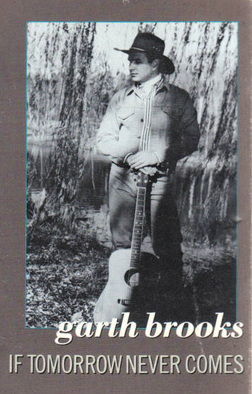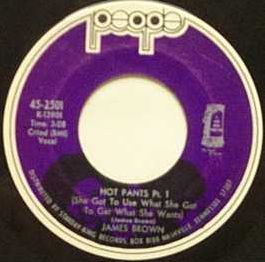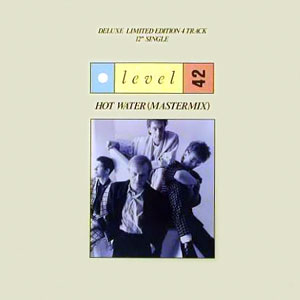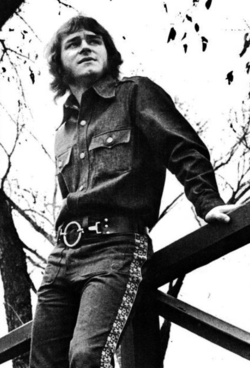
Randolph Charles Bachman is a Canadian guitarist, singer, and songwriter. He was a founding member of the bands The Guess Who and Bachman–Turner Overdrive. Bachman recorded as a solo artist and was part of a number of short-lived bands such as Brave Belt, Union and Ironhorse. He was a national radio personality on CBC Radio, hosting the weekly music show, Vinyl Tap. Bachman was inducted into the Musicians Hall of Fame and Museum in 2016.

Booker T. & the M.G.'s were an American instrumental, R&B, and funk band formed in Memphis, Tennessee, in 1962. The band is considered influential in shaping the sound of Southern soul and Memphis soul. The original members of the group were Booker T. Jones, Steve Cropper (guitar), Lewie Steinberg (bass), and Al Jackson Jr. (drums). In the 1960s, as members of the Mar-Keys, the rotating slate of musicians that served as the house band of Stax Records, they played on hundreds of recordings by artists including Wilson Pickett, Otis Redding, Bill Withers, Sam & Dave, Carla Thomas, Rufus Thomas, Johnnie Taylor, and Albert King. They also released instrumental records under their own name, including the 1962 hit single "Green Onions". As originators of the unique Stax sound, the group was one of the most prolific, respected, and imitated of its era.

The Guess Who is a Canadian rock band formed in Winnipeg, Manitoba in 1965. The band found their greatest success in the late 1960s and early 1970s, under the leadership of singer/keyboardist Burton Cummings and guitarist Randy Bachman, with hit songs including "American Woman", "These Eyes", and "No Time".

Burton Lorne Cummings is a Canadian musician. He is best known for leading The Guess Who during that band's most successful period from 1965 to 1975, and for a lengthy solo career.

Roy Ayers is an American vibraphonist, record producer and composer. Ayers began his career as a post-bop jazz artist, releasing several albums with Atlantic Records, before his tenure at Polydor Records beginning in the 1970s, during which he helped pioneer jazz-funk. He is a key figure in the acid jazz movement, and has been described as "The Godfather of Neo Soul". He is best known for his compositions "Everybody Loves the Sunshine", "Lifeline", and "No Stranger To Love" and other that charted in the 1970s. At one time, he was said to have more sampled hits by rappers than any other artist.
Manitoba has produced much Canadian music, especially since the early 1960s.
The Watchmen are a Canadian rock band. They were one of the most commercially successful bands in Canada in the mid to late 1990s. During their peak years, the band had one platinum record and three more gold records. The band has toured Canada a number of times, were the opening act for The Tragically Hip, and co-headlined a national tour with Big Wreck.

Luke Boyd, better known by his stage name Classified, is a Canadian rapper and record producer from Enfield, Nova Scotia.

"If Tomorrow Never Comes" is a song by American country music artist Garth Brooks. Written by Brooks and Kent Blazy, it was released in August 1989 as the second single from his self-titled debut album. The track was his first number-one single on the US Billboard Hot Country Singles chart, and Brooks refers to it as his signature song. "If Tomorrow Never Comes" was named Favorite Country Single in the American Music Awards of 1991.

Elvis for Everyone! is a compilation album by American singer and musician Elvis Presley, issued by RCA Victor in mono and stereo, LPM/LSP 3450, on August 10, 1965. Recording sessions took place over a ten-year span at Sun Studio in Memphis, RCA Studio B in Nashville, Tennessee, and Radio Recorders in Hollywood, California. It peaked at number 10 on the Top Pop Albums chart.

The Bells, a.k.a. The Five Bells, were a Canadian soft rock band from Montreal, Quebec, active from 1964 to 1974. They released five albums and several singles, two of which were major hits in the early 70s, "Fly Little White Dove Fly" and especially "Stay Awhile".

"Hot Pants (She Got to Use What She Got to Get What She Wants)" is a 1971 song by American singer James Brown, released as a single on his People Records label (then distributed by King Records) in July of that year with "Pt. 1" on the A-side and "Pt. 2 and 3" on the B-side. It was a number-one hit on the Billboard R&B chart, and reached number fifteen on the Hot 100 and number ten on the Cashbox magazine charts. "Hot Pants" was Brown's final release under King's purview before he and the People label moved to Polydor Records.

"Hot Water" is a single released in 1984 by the English jazz-funk band Level 42. It was released a couple of weeks before the band's studio album True Colours (1984). The single reached #18 on the UK Singles Chart and was a top ten hit in the Netherlands and Norway. The song was produced by Ken Scott.
Allan Peter Stanley Kowbel, better known by his stage name Chad Allan, was a Canadian musician. He was the founding member and original lead singer of The Guess Who.

Atomic Rooster are a British rock band originally formed by members of The Crazy World of Arthur Brown, organist Vincent Crane and drummer Carl Palmer. Their history is defined by two periods: the early-mid-1970s and the early 1980s. The band went through radical style changes, but they are best known for the hard, progressive rock sound of their hit singles, "Tomorrow Night" and "Devil's Answer", both in 1971.

Michael Lington is a Danish-American contemporary saxophonist, songwriter, producer, recording artist and a purveyor of soul and contemporary jazz.
"Rings" is a soft rock song which in 1971 became a top 20 U.S. Pop hit for the Memphis band Cymarron and also peaked at number 66 in Australia. It was a top 10 C&W hit for Tompall & the Glaser Brothers.
Spice, originally Sugar & Spice, was a Canadian pop and folk band based in Winnipeg, Manitoba, active from 1967 to 1973.
Bryan Fustukian is a Canadian country music singer and songwriter. He is also notable as a former radio broadcaster and concert promoter. Under the stage name of Vik Armen, Fustukian initially developed his music career in pop music. He continues to perform and record country music as Bryan Fustukian and pop music as Vik Armen.
"I Can Smell That Funky Music" was a hit in 1972 for soul singer Eric Mercury. This was the first time he had a single of his own in the charts. Recorded and produced in the United States, the success of the single was in Canada where Mercury was originally from.













